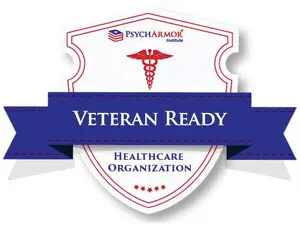Are You an Addict? Why Language Matters in Recovery
As you learn more about who you really are, it’s all too easy to let your internal critic take over the conversation. Part of this response stems from vulnerability—in recovery, you’re going through a lot, and this is sometimes uncomfortable. But is calling yourself an addict or alcoholic detrimental to your long-term growth? Some researchers say yes.
Addict and Alcoholic: Outdated Terms for Disease
The term “addict” comes from the Latin word, addictus, defined as “to abandon, betray, sacrifice, or sell out.” It also describes “a yielding to impulse, and generally a bad one.” When Alcoholics Anonymous (AA) was founded in 1935, it stated its primary purpose for attendees was to “stay sober and help other alcoholics achieve sobriety.” So many people referred to themselves from then on as alcoholics, and the moniker stuck. It also became the norm to identify someone with an addiction as an “addict” instead of a person with substance use disorder (SUD).
Labeling someone as their condition is still common. For example, how often do you hear an individual referred to as a “diabetic” instead of “someone with diabetes”? Or “cripple” instead of “a person with a disability”? You can probably think of other cruel derogatory terms for people based on the color of their skin, culture, or orientation.
But the National Institute on Drug Abuse (NIDA) indicates that “for people with a SUD, stigma may stem from antiquated and inaccurate beliefs that addiction is a moral failing, instead of what we know it to be—a chronic, treatable disease from which patients can recover and continue to lead healthy lives.”
In 2012, John F. Kelly founded the Recovery Research Institute (RRI) at Massachusetts General Hospital. Kelly, the Elizabeth R. Spallin Associate Professor of Psychiatry in Addiction Medicine at Harvard Medical School, said, “Labeling someone with a drug or alcohol addiction an ‘abuser’ suggests that person is voluntarily misusing those substances, rather than struggling with a disease that involves their brain chemistry. Such language ‘could suggest willful misconduct, which some people believe should be punished, not treated.’”
Why Language Matters in Recovery
Many people still refer to others—and even themselves—as addicts and alcoholics, usually as some type of reality check or put-down. Some individuals might also use these terms to be self-deprecating, try to deflect expectations, or as a form of tough love. But is negative self-talk really effective?
In addiction and behavioral science, mental health professionals believe negative self-talk is damaging. One reason is because the amygdala—where emotion, memory, and fear processing occur—often operates as a primitive alarm system and frequently generates negativity bias as a form of protection. It generates mostly negative thoughts about 80 percent of the time, requiring you to work even harder during your daily recovery practice to have positive and reinforcing affirmations—for every negative thought, you need at least three positive ones to retrain your brain.
Michigan State University notes that:
- “Our negative thoughts bring our failings into focus and make us unsure about our abilities.” So constantly referring to yourself as an addict or alcoholic reinforces your past addictive behavior, rather than your progressive healing journey.
- “Thinking negatively can make situations seem worse than they really are in a moment.” If you consistently beat yourself up with labeling and negative self-talk, this creates an emotional tailspin.
- “Our mind makes unfair judgments about our behavior, our integrity, and the possibilities that may be right in front of us.” Valuing your self-worth and self-esteem is even more complicated as a result.
- “Bearing the weight of this negativity can be exhausting.” Recovery is an ongoing process, but it doesn’t need to be weighed down by additional obstacles, especially if you’re also managing physical ailments or a mood disorder such as anxiety or depression.
To help individuals in addiction recovery and the people who love them, Kelly’s institute published an “Addiction-ary” to help reduce labeling stigma. “If we want addiction destigmatized, we need a language that’s unified.” So words that label someone rather than explain a condition such as AUD or SUD might show up as a “stigma alert” in the Addiction-ary.
Along with “addict” and “alcoholic,” other words NIDA and RRI believes perpetuate negative stigma involving AUD and SUD include:
- Abuser
- Drunk or dry drunk
- Two-stepper
- User
- Junkie
- Former or reformed addict
- Being co-dependent
- Being clean or being dirty
These and other experts state that when your inner critic starts to intrude, especially regarding addictive behavior, try giving it a name. This helps you identify the emotion or thought without becoming attached. For example, use “I” statements to help you retain control instead of falling into traps of blame, guilt, or shame. The negative thought becomes Marcia. Or Bruno. Or something. Then shift your internal dialogue to reduce negativity: “Thanks for your input, Marcia, but I really don’t believe that’s true.” As silly as it might seem, researchers say it works.
Progressive Recovery at Seabrook
Our New Jersey-based addiction rehabilitation facility has four locations staffed with board-certified professionals who specialize in addiction medicine, addiction psychiatry, and other modalities. The Seabrook Model® utilizes community, continuity and structure to help you or a loved one reach recovery fulfillment. Learn more about how we value you and individual your journey through our comprehensive programs, then call us with any questions.




